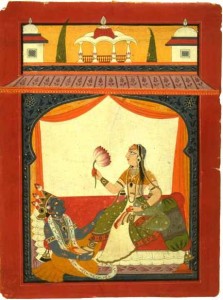#IndianWomen: Life and love like Hindi film, #IshkqInParis
It’s been ages since I saw a film (Lincoln was the last and that was in D.C. in mid-December) and aeons since I gave myself up to the unbridled joys of a Hindi movie. But it’s hard to be immune from some of the chatter swirling around the web about Ishkq (love) in Paris, which stars Preity Zinta, Rhehan Malliek and the Oscar-nominated Isabelle Adjani (who apparently spends the whole time speaking a curiously badly dubbed Hindi!)
Zinta produced the film, clearly thinking it all up or seeing someone else’s film (which thought it all up) and reprising the whole in the imitative way so popular in Bollywood.
Reviewers have mostly panned her offering, wondering why Preity Zinta thought a cliché would be a clever comment on contemporary reality. “Consider the scenario,” wrote one reviewer in the Hindustan Times, “boy sees girl on train, checks her out, comments on her clothes and then introduces himself with a smartass line…”
So far, so predictable.
Anyway, Akash and Ishkq (what’s with the ‘k’ in Ishq, by the way?) decide to spend the night together in Paris. The HT review continues, “it would sound absurd, but original, if you hadn’t seen the Ethan Hawke-Julie Delpy starrer where they too meet on a train and agree to spend one night in Vienna.”
Apparently, there is a latent attempt to freshen the stale plot by chucking in large helpings of spice but the experts say it continues tedious and out of time.
I don’t really care if it is a cracking story or not. But, by all accounts, the film appears to portray the heroine making bold decisions about the way she spends her time and who she spends it with. In all sorts of ways, cinematic morality has gone much further than street reality. Indian cinewoman is so much sassier and allowed so much more than Real Indian Woman, who can work so long as she keeps home too and wear most things so long as she’s demure at heart. Arguably, the Rig Vedic period was a glorious time to be a woman in India – they were educated and expected to marry when they were mature enough to choose their mate. There was less schizophrenic dissonance.


